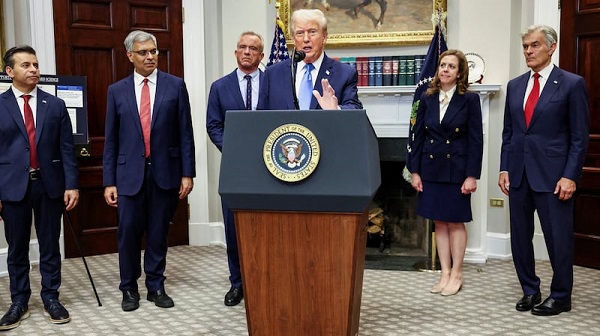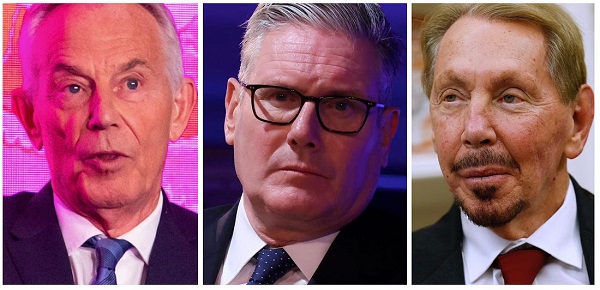Economy
Canada Treats Energy As A Liability. The World Sees It As Power

From the Frontier Institute for Public Policy
Research VP Marco Navarro-Genie warns that Canada’s future hinges on building energy infrastructure, not just expanding pipelines but forging a true North American energy alliance. With global demand rising and authoritarian regimes weaponizing energy, Ottawa’s dithering costs Canada $70 million daily. Sovereignty isn’t secured by speeches but by infrastructure. Until Canada sheds its regulatory paralysis, it will remain a discount supplier in a high stakes geopolitical game. Time to build.
Canada has energy the world is begging for, but ideology and red tape are holding us back
As Prime Minister Mark Carney met with U.S. President Donald Trump recently, energy should have been the issue behind every headline, whether mentioned or not. Canada’s future as a sovereign, economically resilient country will depend in no small part on whether the country seizes this moment or stalls out again in a fog of regulatory inertia and political ambivalence. Canada holds an underleveraged strategic card: the potential to be the world’s most reliable democratic energy supplier. Recent trade figures show Chinese imports of Canadian crude hit a record 7.3 million barrels in March, a direct result of newly expanded access to the Pacific via the Trans Mountain Expansion (TMX), a federally owned pipeline project that now connects Alberta crude to global markets through British Columbia’s coast. But one pipeline does not make a national strategy. Demand in Asia is growing fast. India is among the hungriest, but Canada’s infrastructure is nowhere near meeting that demand.
This matters not just for Canada, but for the United States as well. In a world where energy markets are weaponized and strategic reserves manipulated by authoritarian regimes, the case for a coordinated North American energy alliance is stronger than ever. Such an alliance should not erode national sovereignty. It should reinforce it, allowing Canada, the U.S. and Mexico to insulate themselves collectively from supply shocks and geopolitical blackmail while projecting democratic strength abroad.
But for that alliance to work, Canada must be a credible partner, not merely a junior supplier shackled by Ottawa-induced internal bottlenecks. While the U.S. has leveraged its shale revolution, LNG capacity and permitting reforms to pursue energy dominance, Canada dithers. Projects languish. Investment flees. And meanwhile, Canadian oil continues to flow south at a steep discount, only to be refined and resold, often back to us or our trading partners, at full global prices.

Yes, you read that right. Canada’s oil and gas is sold at a discount to U.S. customers, and that discount costs Canada more than $70 million every single day. The Frontier Centre for Public Policy has developed a real-time tracker to monitor these losses. This pricing gap exists because Canada lacks sufficient pipeline infrastructure to access overseas buyers directly, forcing producers to sell to the U.S., often at below-market rates.
Such massive losses should be unacceptable to any government serious about economic growth, geopolitical influence or environmental integrity. Yet Ottawa continues to speak the language of ambition while legislating the mechanics of paralysis. Stephen Guilbault’s statement that Canada already has enough pipelines speaks to more paralysis..
Canada’s energy infrastructure challenges are not just economic; they are matters of national defence. No country can claim to be secure while relying on another’s pipelines to transport its energy across its own territory. No country can afford to leave its wealth-producing regions boxed in by regulatory choke points or political resistance dressed as environmental virtue.
Our energy economy is fragmented. Western hydrocarbons are stuck inland and must pass through the U.S. to reach Eastern Canada or global markets eastward. This weakens national unity and leaves us exposed to foreign leverage. It also creates strategic vulnerabilities for our allies. American industries depend on Canadian crude. So do U.S. Gulf Coast refineries. And while American officials continue to treat energy as a tool of diplomacy and economic leverage, using energy exports to build alliances and reduce reliance on unstable regimes, Canada treats it as a domestic liability.
We need to shift the frame. Infrastructure isn’t just about steel in the ground; it’s the backbone of strategic autonomy. Pipelines, export terminals and utility corridors would allow Canada to claim its place in the emerging geopolitical order. They would also signal to global investors that Canada is open for business and capable of delivering returns without political obstruction.
The U.S. wants a stable, competent partner to help meet global energy needs. Increasingly, so does the rest of the world. But until we address our internal dysfunction and build, we’re stuck. Stuck watching global opportunities pass us by. Stuck selling low while others sell high. Stuck in a conversation about sovereignty we’re not structurally equipped to address, let alone win.
When Carney meets with Trump again, he would do well to remember that economic independence, not rhetorical unity, is the bedrock of sovereignty. Without infrastructure, Canada brings only words to a hard-power conversation.
Paraphrasing Thomas Hobbes, energy covenants without infrastructure are but words. It’s time to stop posturing and start building.
Marco Navarro-Genie is the vice-president of research at the Frontier Centre for Public Policy. He is co-author, with Barry Cooper, of Canada’s COVID: The Story of a Pandemic Moral Panic (2023).
Economy
Reconciliation means clearing the way for Indigenous leadership
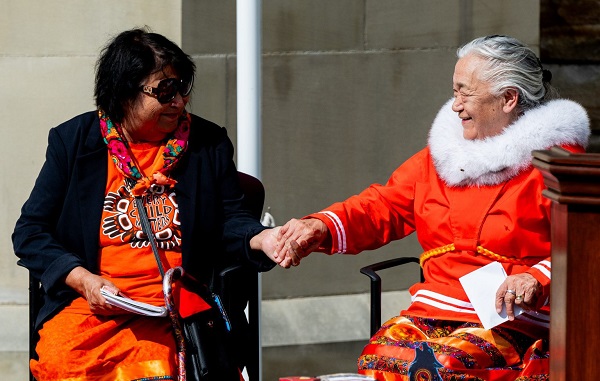
From the Resource Works team.
On Truth and Reconciliation Day, Canadians are asked to honour residential school survivors and to support the families and communities who must live with that history.
It also calls for action, not mere commemoration. The Truth and Reconciliation Commission called for structural change in Canada, and that means clearing the way for Indigenous leadership across this country.
Economic reconciliation is a practical journey that shifts decision-making and ownership towards First Nations and Indigenous people more generally.
Throughout B.C., First Nations are already practicing what that looks like. The Osoyoos Indian Band has built a diverse economy in tourism, wine, and recreation that has sustained steady jobs and revenue.
“I think all Native leadership need to get the economic development focus going on and make the economy the number one issue. It’s the economy that looks after everything,” Chief Clarence Louie has said. That sense of mission, along with assets like Nk’Mip Cellars and Spirit Ridge, has helped to turn Osoyoos into a B.C. success story.
On the coast, the Haisla Nation is leading in innovation in the LNG sector. In 2024, the Cedar LNG facility was granted a positive final investment decision, along with the Haisla’s majority ownership of the $4 billion project.
“Today is about changing the course of history for my Nation and Indigenous peoples,” said Haisla Chief Councillor Crystal Smith during the long approval process. By seeing the project through, Haisla ownership has created the means to fund language, health care, and opportunity for generations that had found all of that out of reach.
In the Lower Mainland, the Squamish Nation’s Sen̓áḵw development is one of the biggest projects in the Vancouver real estate market, and will become an asset for decades to come.
“This project is not just about buildings, it’s about bringing the Squamish People back to the land, making our presence felt once again in the heart of our ancestral territory, and creating long term wealth for the Squamish Nation,” said Council Chairperson Khelsilem.
The Squamish recently restructured the partnership so Squamish holds half of phases one and two and all of phases three and four, while welcoming OPTrust to a 50 percent stake in the early phases. Indigenous leadership is not just transforming the rural resource economy, but the urban one as well.
Chief Ian Campbell of the Squamish Nation, former chair of the Indigenous Partnerships Success Showcase event in Vancouver, has said that economic reconciliation is essential to the future of Canada.

“To move forward and reframe that complex dynamic, and put the lens on economic reconciliation, to me, is the path forward to create mutual benefits and values that benefit all Canadians, which includes Indigenous people,” said Campbell.
For governments and industry, there is a duty to align policy, permitting, and capital flows with Indigenous-led priorities. Beyond benefits agreements, reconciliation requires listening both early and attentively, and ensuring cooperation every step of the way.
The Bank of Canada itself has noted that “tremendous untapped potential exists”, but only when private firms and public agencies commit to economic reconciliation.
Listening also means resisting the temptation to cast Indigenous peoples as either monolithic supporters or opponents of development. Figures like Ellis Ross, former Chief Councillor of the Haisla, and his successor Crystal Smith have challenged these narratives, pointing instead to Haisla and neighbouring Nations’ experience with real jobs, careers, and community services tied to LNG and related infrastructure.
The Haisla message is straightforward: the path to revitalized language and culture runs through sustained opportunity and self-determination.
Truth and Reconciliation Day is a reminder that the past matters, and this is evident in the inequities of the present and in the possibilities now being realized by Nations that are reclaiming jurisdiction and building enterprises on their own terms.
Our task is to ensure public policy and corporate practice do not get in the way. On September 30, we remember, and then on October 1 and every day after, we have work to do.
Alberta
Taxpayers: Alberta must scrap its industrial carbon tax

-
Carney praises carbon taxes on world stage
-
Alberta must block Carney’s industrial carbon tax
The Canadian Taxpayers Federation is calling on the government of Alberta to completely scrap its provincial industrial carbon tax.
“It’s baffling that Alberta is still clinging to its industrial carbon tax even though Saskatchewan has declared itself to be a carbon tax-free zone,” said Kris Sims, CTF Alberta Director. “Prime Minister Mark Carney is cooking up his new industrial carbon tax in Ottawa and Alberta needs to fight that head on.
“Alberta having its own industrial carbon tax invites Carney to barge through our door with his punishing industrial carbon tax.”
On Sept. 16, the Alberta government announced some changes to Alberta’s industrial carbon tax, but the tax remains in effect.
On Friday night at the Global Progress Action Summitt held in London, England, Carney praised carbon taxes while speaking onstage with British Prime Minister Keir Starmer.
“The direct carbon tax which had become a divisive issue, it was a textbook good policy, but a divisive issue,” Carney said.
During the federal election, Carney promised to remove the more visible consumer carbon tax and change it into a bigger hidden industrial carbon tax. He also announced plans to create “border adjustment mechanisms” on imports from countries that do not have national carbon taxes, also known as carbon tax tariffs.
“Carney’s ‘textbook good policy’ comments about carbon taxes shows his government is still cooking up a new industrial carbon tax and it’s also planning on imposing carbon tax tariffs,” Sims said. “Alberta should stand with Saskatchewan and obliterate all carbon taxes in our province, otherwise we are opening the door for Ottawa to keep kicking us.”
-
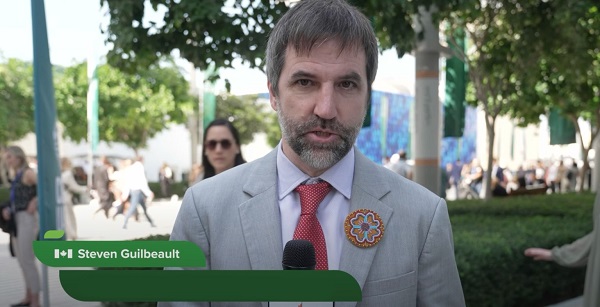
 Censorship Industrial Complex2 days ago
Censorship Industrial Complex2 days agoCanada To Revive Online Censorship Targeting “Harmful” Content, “Hate” Speech, and Deepfakes
-

 Alberta2 days ago
Alberta2 days agoAlberta refuses to take part in Canadian government’s gun buyback program
-
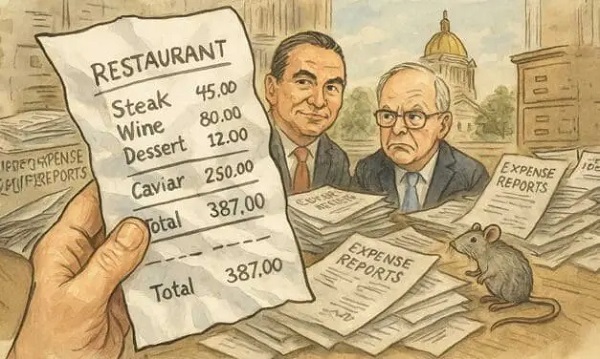
 Business1 day ago
Business1 day agoTaxpayers deserve proof of how politicians spend their money
-

 Business1 day ago
Business1 day agoOttawa’s civil service needs a Chrétien-style reset
-
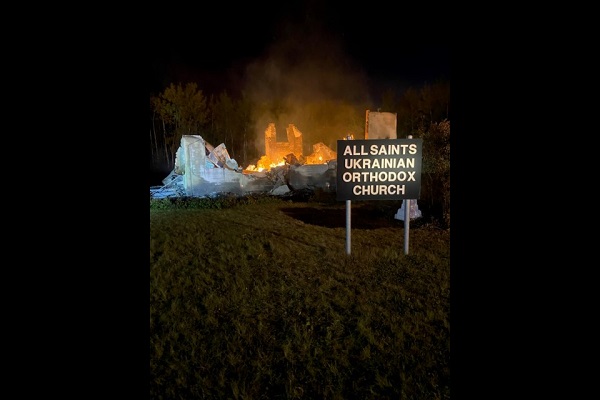
 Alberta2 days ago
Alberta2 days agoOrthodox church burns to the ground in another suspected arson in Alberta
-

 Fraser Institute1 day ago
Fraser Institute1 day agoAboriginal rights now more constitutionally powerful than any Charter right
-

 Alberta1 day ago
Alberta1 day ago$150 a week from the Province to help families with students 12 and under if teachers go on strike next week
-
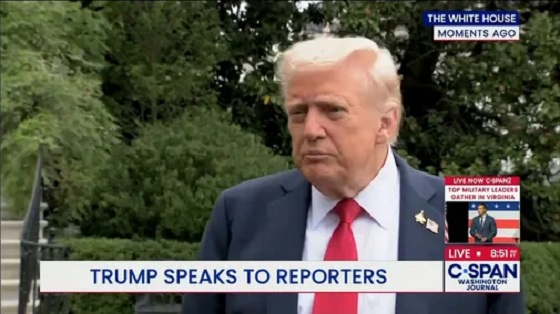
 International1 day ago
International1 day agoTrump gives Hamas four days to choose: peace or obliteration





